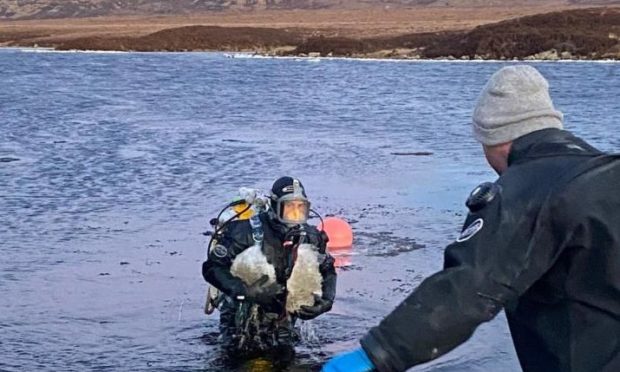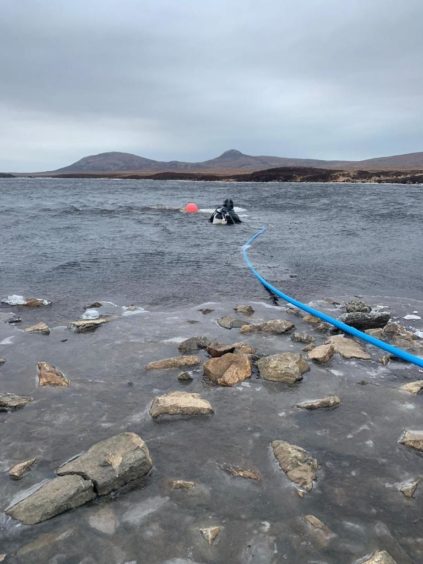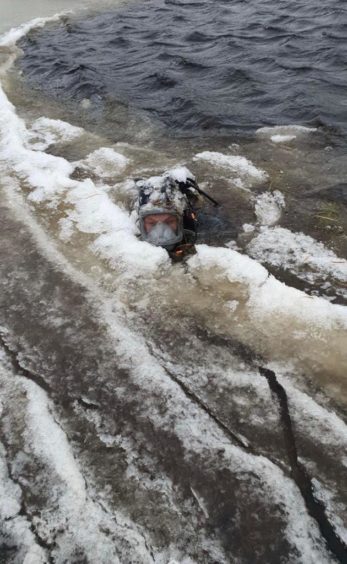Divers have played an “extraordinary role” in helping water supplies flow in the Western Isles and Highlands.
As parts of the north of Scotland experienced their coldest minimum temperatures in 25 years, Scottish Water’s operations team faced a battle to keep communities supplied.
With intakes from supply lochs starting to freeze up after sustained sub-zero temperatures, Scottish Water called upon the help of professional divers more used to working in seawater to inspect and maintain salmon cages and feed barges, than working around the clock in icy inland lochs.
Divers from Lochs Diving Services played a key role in avoiding significant disruption to customer supplies at Ness and Stornoway in Lewis by clearing ice and maintaining flow through intakes.
The biggest challenge of all was faced by Benbecula-based NDUS at Lochmaddy in North Uist, where two dive teams maintained a constant watch for more than 48 hours.
Only then was there confidence that stable supply of water from Loch Fada to Lochmaddy water treatment works had been restored.
Mark MacInnes, of NDUS, and one of the original team of four divers who were on site, said: “Usually it’s seawater we’re working in, so the temperatures don’t go much below around 6 degrees Celsius, even in winter.
“The water temperature in Loch Fada overnight was down between -3 and -4 degrees Celsius.
“We only had about four inches of visibility in the loch during the daytime, and even less at night.
“We had to find and clear the intakes using our hands – but you lose a lot of feeling and dexterity at that kind of temperature which makes it harder.
“As soon as slush from the loch was coming into contact with the screen, the holes were icing over.
“As we worked through the night, one side of the screens was freezing over as fast as you could clear the other.
“We set up a net around the screens with ropes to the surface, which helped slow down the formation of ice and reduce the frequency of having to go into the loch.
“We just had to keep watching the flow into the pumping station to know when we had to go and clear the screens again.
“The biggest challenge without a doubt was the cold and the long hours. However, my team of four are all new dads, so in the last year we’ve all had some training for being up at all hours through the night and getting by with little sleep.
“My whole family live in the communities served by Lochmaddy, so we knew how important it was to get everyone’s water supply back to normal.”
With the divers keeping the intake clear, Scottish Water’s team worked to maximise production of drinking water at the site, brought in extra supplies by road tanker.
Scottish Water’s operations team leader Peter MacNab said: “The situation we faced two weeks ago was a real test for our dedicated local team.
“The duration and the extent of the challenges we faced across the islands called for a marathon effort.
“The commitment of our people to the essential role we play, and to finding solutions under pressure, was critical to success over four very long days and nights.
“When we most needed it, we couldn’t have asked for stronger support from so many local businesses and partner organisations.”


